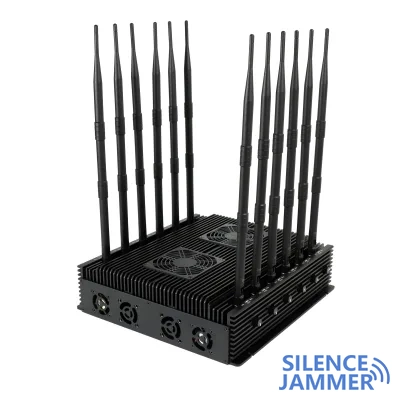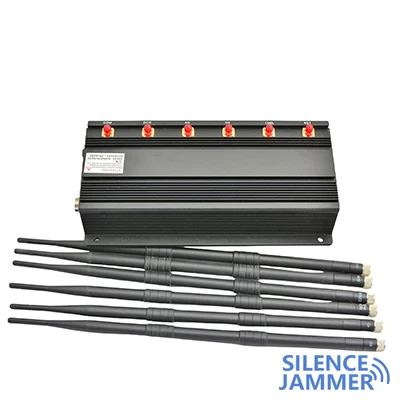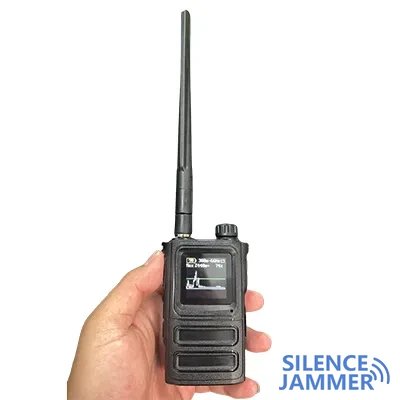
Pager explosions escalate conflicts and walkie signal jammers become one of the solutions
The pager explosion in Lebanon has become a shocking turning point in the increasingly tense situation in the Middle East. The explosion not only led to Hezbollah's threat of revenge against Israel, but also triggered a global discussion on the key role of signal jammers in modern conflicts. With the continuous development of technology, electronic devices such as pagers and mobile phones have become more and more potential weapons on the battlefield, and walkie signal jammers are seen as possible means of defense and can play a vital role in future conflicts.
Background of the explosion
Thousands of pagers in Lebanon and Syria exploded at the same time, killing 12 people and injuring nearly 3,000 people, including Hezbollah members, Iran's special envoy to Beirut, and innocent civilians. The pager explosion not only caused heavy casualties, but also plunged Lebanese society into extreme panic. The Lebanese health minister reported that more than 200 of the injured were in critical condition, and the death toll even included a young girl, which attracted widespread international attention to the incident.
After the incident, Hezbollah quickly accused Israel's spy agency Mossad of placing explosive devices in pagers and vowed to retaliate. This accusation further exacerbated the situation, and countries such as the United States and Jordan quickly issued statements calling on all parties to remain calm and avoid escalating the conflict. However, as tensions between the two sides intensified, the Middle East fell into an unprecedented crisis.
The role of signal jammers
- iIn this conflict, a focus of widespread concern is whether walkie signal jammer devices can effectively prevent such remote-controlled explosions? Experts believe that the explosion may be caused by remote signals, which provides the possibility of pagers becoming explosive tools. If walkie signal jammers can be deployed in place before the incident, they may be able to block the detonation signals of these explosive devices, thereby avoiding the occurrence of disasters.
- iThe basic principle of signal jammer devices is to cut off the connection between the device and the remote operator by interfering with or blocking wireless communication signals. Signal jammer blockers have been widely used in the military and security fields to prevent remote control of drones, mobile phones and other devices. These devices are used on the battlefield to prevent enemies from using electronic devices to attack, and can also protect sensitive areas from external signal interference.
Signal jammers in modern conflicts
As modern warfare and conflicts become more complex, VHF signal jammers are becoming increasingly important in maintaining security. Electronic devices have become a low-cost and efficient means of attack in threats such as terrorist attacks, espionage and illegal manipulation of devices. As a defensive measure, VHF walkie signal jammers can help governments and security departments weaken this technological threat.
Not only that, signal blocker jammers are also increasingly used in the field of public security. In recent years, governments around the world have been considering introducing shielding technology in schools, public transportation, hospitals and government buildings to prevent terrorists or criminals from using remote control devices to launch attacks. In addition, signal jammers are also used to prevent information leaks or electronic eavesdropping during certain sensitive international conferences or visits by high-level officials.

Despite the high potential of signal blockers in defense, their widespread use still faces many challenges. First, how to ensure that these devices do not interfere with legitimate communications is an important issue. Especially in emergency situations, hospitals, ambulances, fire departments, etc. need to rely on wireless communications to coordinate actions. If the jammer device indiscriminately blocks all signals, it may cause emergency services to be affected, causing secondary disasters.
Secondly, the deployment cost of the signal jammer cannot be ignored. In a country like Lebanon, the fiscal budget may not be enough to support large-scale equipment installation and maintenance. In addition, electronic technology in modern conflicts continues to advance, and the communication frequency bands of pagers, mobile phones and other devices are also constantly updated. This means that signal jammer devices need to be constantly upgraded to adapt to new threats and challenges.

The Lebanese pager explosion not only reveals the shadow of electronic warfare in modern conflicts, but also makes the international community aware of the importance of signal blocker jammers. As tensions between Israel and Hezbollah further escalate, signal blockers may become an important tool for all parties to strengthen their defense. In the future, the role of this technology in conflicts is bound to be more deeply explored and applied. In terms of preventing remote explosive devices and protecting sensitive areas from attacks, signal jammers will undoubtedly provide strong technical support for maintaining peace and security in the Middle East.




